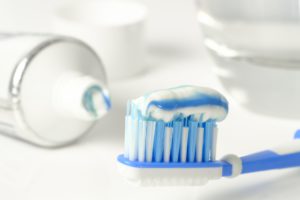Currently, teeth whitening can be done in the dentist’s office or you can use professional whitening products at home. Longer sessions can lead to white spots on your teeth, so it’s important that you only have your teeth whitened by a dentist you can trust.
Natural tooth enamel can be brightened with whitening products, but not even a dentist can remove stains from the materials used to make crowns and veneers. The ingredients in these types of whitening gels attack the stains on your teeth, so this oxidative treatment won’t work on anything other than your everyday natural teeth. However, professional whitening by a dentist penetrates the deeper layers of the teeth and removes the inherent staining that makes them appear darker. Pigmented spots that form after antibiotics and some other medications, fillings, so-called “dead teeth” (teeth with nerves removed), will not be bleached.
Healthy teeth and teeth with fillings can and should also be whitened. Natural teeth are naturally whitened by the whitening material, but fillings, crowns, bridges, dentures (any artificial ones) do not react. Over-whitening teeth can cause sensitivity because teeth are always dehydrated, gum sensitivity, tooth enamel erosion, and teeth look translucent instead of white.
Sometimes whitening can cause tooth sensitivity, so if you know you have a predisposition to tooth sensitivity, you can try using desensitizing toothpaste for at least a month before starting any whitening. You can use a desensitizing toothpaste about 1 month before teeth whitening and if the sensitivity decreases you can use any product. The active ingredient in whitening sticks only works on teeth for 30-60 seconds because saliva washes it away, so choose a whitening stick that uses hydrogen peroxide (not carbamide) and a professional firming gel.
The regression is natural and should be very gradual, but it can be accelerated by exposing the teeth to various stains such as coffee, tea, tobacco, red wine, etc. For the first 60 years, you should not eat or drink anything but water. years after teeth whitening and avoiding dental stains for 24 hours thereafter (eat and drink white or clear coloured foods during this time). Hydrogen peroxide teeth whitening results are not meant to be permanent and can last up to 2 years with professional teeth strengthening products. Stains will still build up on the surface after drinking coffee, tea, or wine, but professionally performed in-office teeth whitening should last one to two years and may be followed by a simple preventive visit.
While many at home teeth whitening in Australia can be effective for small stains, it is often necessary to see a professional to remove deep or stubborn stains. While home remedies may contain harsh ingredients that can cause permanent enamel damage, in-studio teeth whitening treatments have oral health in mind. The most popular methods include using ingredients such as baking soda or oil extract to whiten teeth; It is very important to know what may and may not work for your smile. With an almost endless number of whitening options at your disposal, your doctor can find a solution that works, no matter how sensitive your teeth are.

For healthy and bright teeth, it is important to choose safe products and follow recommended procedures. It is important not to fall into myths and not damage healthy teeth. So the truth about all these myths is that you can prevent tooth discoloration with regular oral hygiene.
While many people use coconut oil for cooking and skin hydration, coconut oil’s ability to whiten teeth is just another one of five teeth whitening myths. Proponents of this myth claim that fruits like lemons and strawberries can whiten teeth. For those who advocate natural remedies for teeth whitening, rubbing oranges, lemons, strawberries, and other sour fruits on the teeth is a popular practice. Many people think that rubbing acidic fruits like lemons or oranges on your teeth can remove dark spots and brighten your smile.
Forget the time-consuming and expensive process of using store-bought whitening products and visit a dentist who can whiten your teeth in just five minutes. To get the brilliant set of pearly white teeth you’ve always dreamed of, put aside the fads and misconceptions about whitening and ask your dentist how to take your teeth from dull to dazzling. Proper oral hygiene and brushing with whitening toothpaste and avoiding foods that stain your teeth will help prolong the life of your white teeth.
It’s true that whitening can temporarily increase sensitivity, but if you follow your whitening system’s instructions exactly and stay in touch with your dentist, your oral health won’t be affected because you want a brighter smile. This professional whitening solution can restore enamel up to several shades whiter than any homemade whitening solution. As effective as professional teeth whitening can be, the idea that only one whitening session is required is too good to be true. While many home teeth whitening kits in Australia can provide mild to moderate results, there is no substitute for professional whitening. Dentists use advanced whitening solutions that are usually based on hydrogen peroxide or carbamide peroxide, hydrogen peroxide or carbamide peroxide.
In the past, people with sensitive teeth were unable to undergo a whitening procedure due to increased toothache after it. Whitening occurs by opening the pores of the teeth and penetrating the cleaning agent into the internal structures of the teeth, cleaning them of stains.



